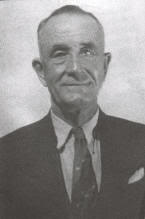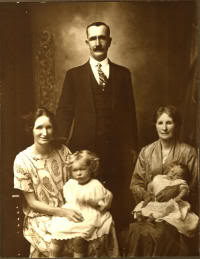Alexander Petroff
| Russian spelling | Александр Иванович Петров |
|---|---|
| Born | 23.04.1880 |
| Place | St Petersburg, Russia |
| Ethnic origin | Russian |
| Religion | Church of England |
| Father | John Petroff |
| Mother | Alexandra Vasilevna Petroff |
| Family | Brother Jack Petroff in Western Australia. Wife Jessie (nee Cameron) Petroff, married 1923; daughters: Neonela Barbara ("Nela") b. 1923, Olga Morrison b. 1924 and Dolina Mary ("Mary") b. 1926; left family in 1926 |
| Contacts | |
| Residence before arrival at Australia | Served in the Russian Red Cross at Port Arthur during the Russo-Japanese war; fled Russia as a political offender |
| Arrived at Australia |
from Colombo on 2.03.1909 per Bremen disembarked at Fremantle, WA |
| Residence before enlistment | Dowerin, Karridale, Perth, Jarrahwood, Collie, visited Colombo, Korrelocking, Ballidu, WA |
| Occupation | 1913 timber worker, 1915 contactor, 1918-21 farmer, 1940 employee |
| Naturalisation | 1921 |
| Residence after the war | Fremantle, Tenindewa near Mullewa, WA, 1940 Mount Isa, Qld |
| Died | 27.05.1946, Qld |
Service #1
| Service number | 2360 |
|---|---|
| Enlisted | 25.11.1915 |
| Place of enlistment | Perth |
| Unit | Mining Corps, 3rd Tunnelling Company |
| Rank | Sapper |
| Place | Western Front, 1916-1917 |
| Final fate | RTA 21.12.1917 |
| Discharged | 2.08.1918 MU |
Materials
Digitised naturalisation 1 2 (NAA)
Digitised service records (NAA)
Digitised Embarkation roll entry 1 2 (AWM)
Alien registration (NAA)
Publications
Elena Govor, 'And now... looking for Private Petroff', - Carillon Chimes, no. 124, 2005, pp. 8-12, ills.
Blog article
Newspaper articles
Bathing without costumes. Two Russians fined. - The South-Western News, Busselton, 14 February 1913, p. 3.
Russian stowaways on the Otranto. - The Daily News, Perth, 18 February 1913, p. 3.
From Russian Anzacs in Australian History:
When Alexander Petroff, a political émigré who had served with the tunnellers on the Western Front, applied for naturalisation in 1920, he was rejected. The reason was his letter to an Estonian labourer Johannes Hunt, at Southern Cross, Western Australia, in which he wrote: 'I do not think you are an Esthonian, Russian or German, but I think you are an International Worker, and the last-named I am absolutely certain is your correct name. ... Bolsheviki ... are fighting for freedom, and who are they who want to kill that Freedom? There is no other reply [but] "The Capitalists".' That kind of rhetoric was enough for the director of the Investigation branch, Major Harold Jones, to hold over his application. Luckily, a year later a local policeman from Mullewa, Western Australia, where Petroff and his brother had a farm, came to the following conclusion: 'I am of the opinion that if Alex Petroff had extreme views whilst working for wages, now that he is a land owner and an employer of labour his views have altered with his different standpoint'. Such 're-education' through the benefits of the capitalist system finally persuaded Major Jones to grant Petroff his naturalisation.
Gallery

Alexander Petroff
NAA A446, 1960/35906

Alexander Petroff with his family
Jacob Cilin's archives,
courtesy of Margaret Mueller
 Russian Anzacs
Russian Anzacs